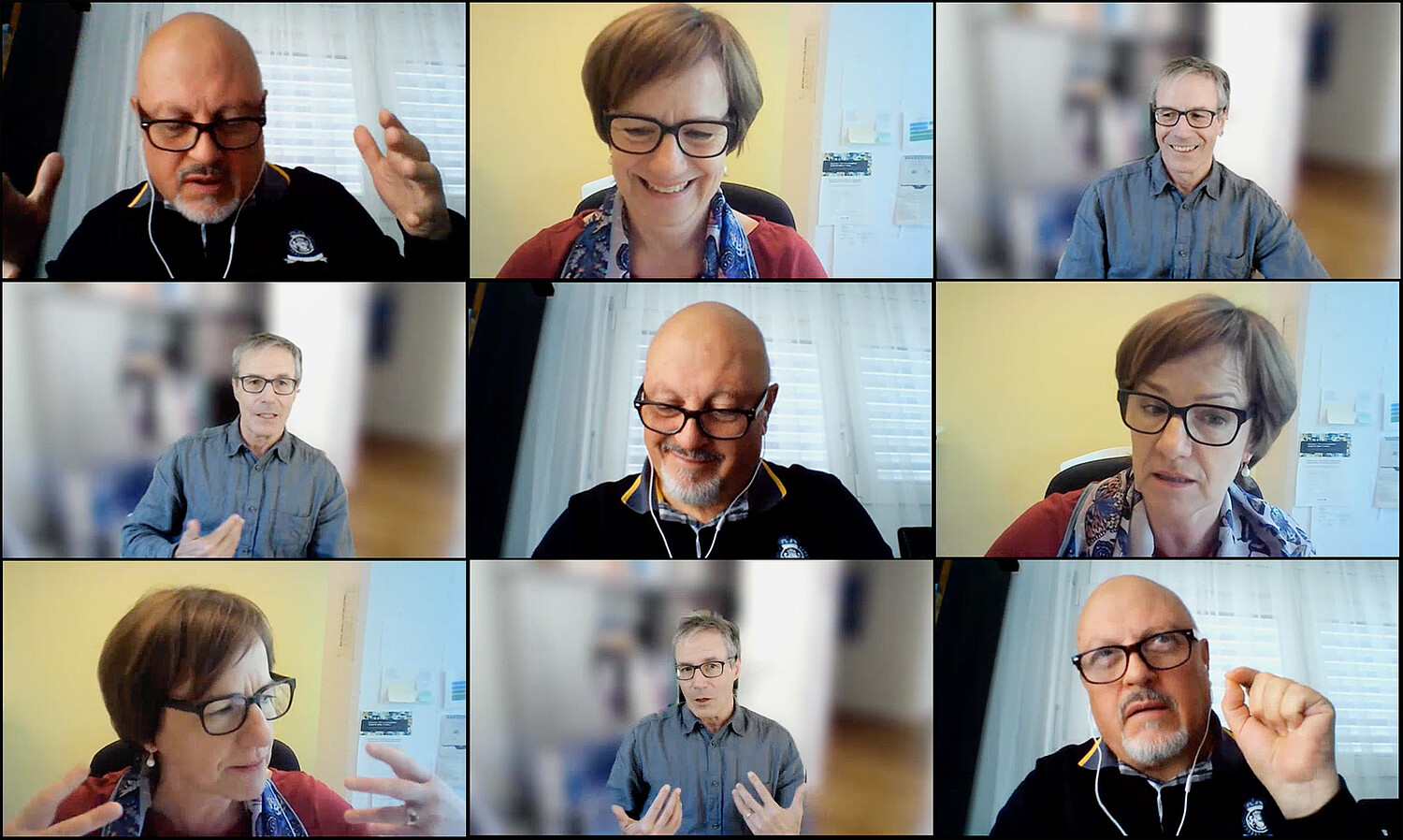
Overcoming crises: solidarity helps others and ourselves
Does de-escalation always result in peace? Are we setting the right priorities in terms of ecology and economics? What can we do to tackle individual crises? Three ZHAW experts discuss ecological, economic, social and personal crises.
The war in Ukraine, the corona pandemic, the climate crisis, the economic crisis … crisis after crisis. What’s all this doing to us?
Agnes von Wyl: The crises you list are affecting most people, even if in different ways. The pandemic, in particular, conjured up fear in many of us to begin with, since it had a direct impact on our everyday lives. We could no longer travel to work. People with families were not sure how they would cope with working and learning from home. And there was concern for elderly relatives and friends. We had to reorganise our entire lives. Only in the course of time were we able to adjust to the situation and have our fears allayed.
Then came the Ukraine war.
von Wyl: While this war feels more remote from us than the pandemic, it also seems much closer than the other gruesome wars of recent times. For many, it has brought back memories of the Cold War of the 1980s and the threat of nuclear combat. In my case, it reminded me of the song “Besuchen Sie Europa, solange es noch steht” (Visit Europe as long as it is still standing), which was often broadcast on the radio back then. Something of this threat is now resurfacing in our minds. We can also track the war very closely in the media today, reacting with dismay to its brutality. When it comes to the climate crisis, we should seriously be asking ourselves why we are not devoting more attention to it. This is the crisis that poses the greatest threat to us over the long term.
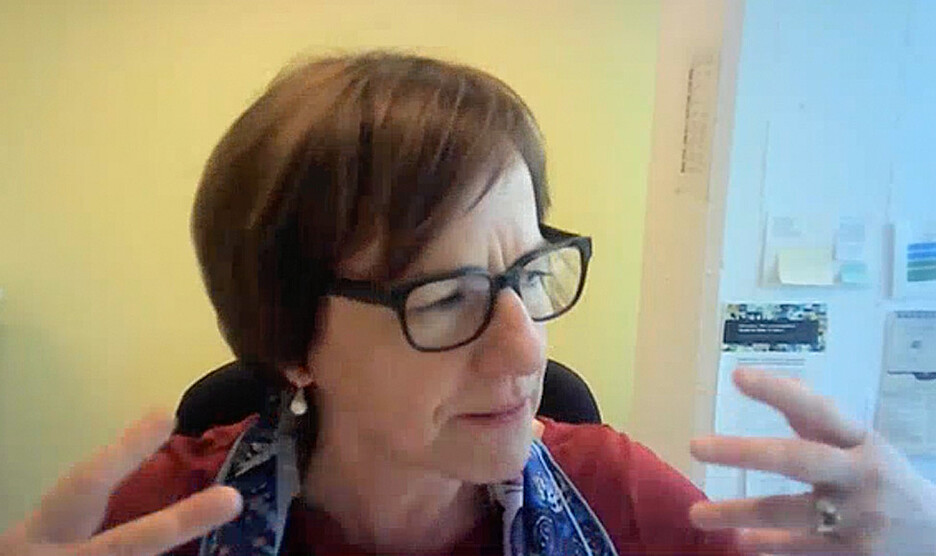
Agnes von Wyl heads the Clinical Psychology and Health Psychology Section at the Psychological Institute of the ZHAW School of Applied Psychology. She lectures in clinical psychology and health psychology and is a psychotherapist.
Khaldoun Dia-Eddine: I would like to place the crises mentioned so far in an even broader context. Since 1991 and the breakup of the Soviet Union, we have experienced 12 to 13 major crises, including the financial crisis in East and South-East Asia in 1997 and 1998, the burst dotcom bubble, the climate crisis, Fukushima, the tsunami in the Indian Ocean and the global financial crisis that resulted from a speculatively inflated real-estate market in the USA.
“Since 1991 and the breakup of the Soviet Union, we have experienced 12 to 13 major crises which have had to be overcome.”
We have had the Arab Spring, the euro crisis, the 9/11 terror act, the wars in Afghanistan and Iraq, the first Ukraine war, the Covid pandemic and now the second Ukraine war – all within the last 30 years or so. This generates uncertainty and despair. Most of these crises are man-made, and that makes me livid.
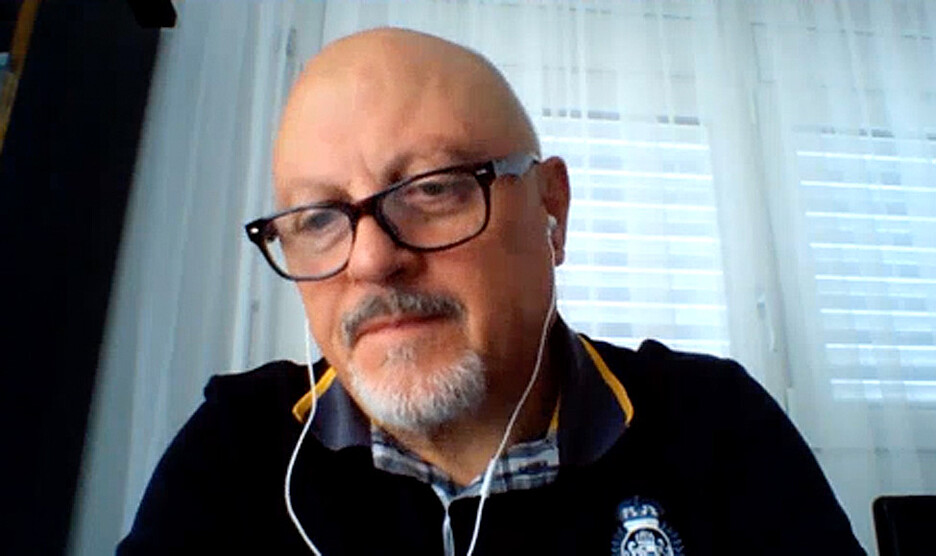
Khaldoun Dia-Eddine heads the Desk for Middle East and Africa Business in the Center for Global Competitiveness at the School of Management and Law. He lectures in Bachelor and Master programmes on International Business, International Negotiation, Doing Business in the Middle East, “War, Economics and Business” and Islamic Finance. Dia-Eddine is also a consultant and expert on the development and implementation of internationalisation strategies, company development in the Middle East, multidisciplinary and multicultural projects and Islamic finance.
Jürg Rohrer: What angers me at times is the “official Swiss approach” to dealing with some of these crises. Great emphasis is placed on personal responsibility, thus avoiding the need to tighten up any framework conditions or impose restrictions.
A voluntary approach to climate protection is one of your research topics, Mr Rohrer. What have you found here?
Rohrer: The average person can only influence around 20 percent of their greenhouse gas emissions directly. Eighty percent of their emissions are indirect. I can voluntarily give up flying, for example, but if I’m a tenant I can’t decide how to heat my apartment. I can only do this if I am one of the fewer than 50 percent of people who own their own home in Switzerland.
“The average person in Switzerland can only influence around 20 percent of their carbon footprint directly. We need different framework conditions.”
This highlights the fact that we need institutional or political decisions to bring about the necessary changes in the framework conditions. Here in Switzerland, too much emphasis is placed on personal responsibility instead. This is how we differ from the countries around us and is one reason why no progress is being achieved here.
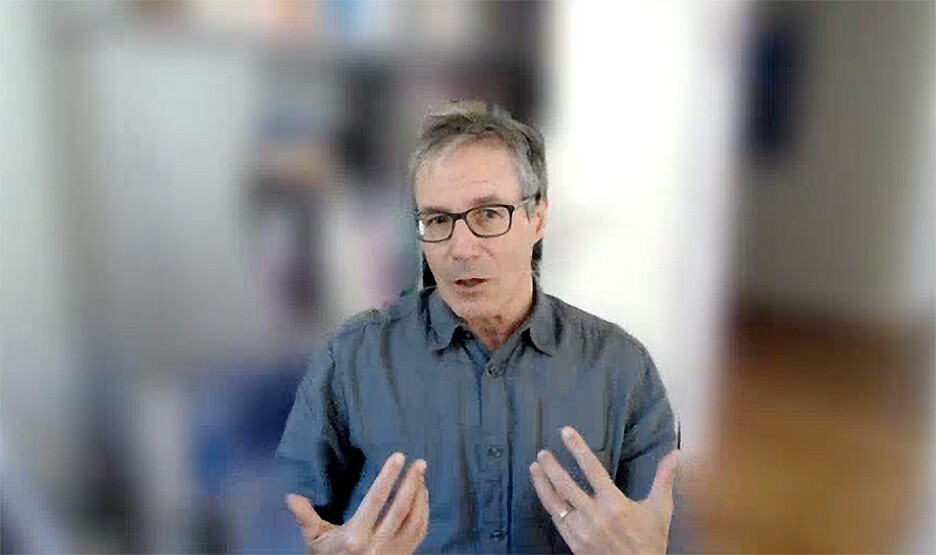
Jürg Rohrer heads the Renewable Energies research group at the Institute of Natural Resource Sciences at the School of Life Sciences and Facility Management. He lectures in renewable energies and energy efficiency.
Dia-Eddine: I’m in two minds about that. The basis of trust underlying personal responsibility also has its advantages. Unfortunately, though, this approach doesn’t always work and things fail to move fast enough – especially in the case of climate protection. The developments taking place are catastrophic, even if we in Switzerland have so far felt this less acutely than the countries at risk from heatwaves, droughts or flooding. I think that we humans have got our priorities wrong. When it comes to climate damage, we’re focusing on discussions like standby mode for electrical and electronic appliances. While I don’t want to belittle this, two bombs in Ukraine are sufficient to wipe out the potential annual savings that Switzerland can achieve by having all our appliances fully switched off. Or to give two further examples – a tank needs six litres of petrol to travel just one kilometre. An aeroplane consumes 18,000 litres of kerosine in an hour. And what are we doing? We’re concentrating on trivialities like standby mode. What has happened to our common sense here?
von Wyl: While it’s quite true that tanks require a great deal of energy, I can’t just point a finger at others. Each and every one of us must think about what we can do to protect the climate and contribute to a peaceful society. And I don’t just mean flying less. We need greater personal commitment in society, in our social environment and in politics. Instead – and I’m no exception here – we sometimes lack the energy to change our behaviour. I myself like taking holidays in foreign countries, for instance, and would certainly wish to continue doing so in future. I must now, however, weigh up whether and to what extent this will still be possible.
We saw a high level of commitment during the pandemic already. On the other hand, the terrible images and news emerging from war zones, intensive care units, natural disasters and famines can also dull our senses or have a paralysing effect. How can we stop ourselves from being dragged down?
von Wyl: Crises take most people by surprise. They are completely thrown off track. Their life to date and the aims that they have set themselves, together with their thoughts as to how they will be shaping their life in future, are suddenly all thrown into disarray. This naturally unsettles them, and many people then hunger after information. I’m one of these. During the pandemic, particular headlines in the media drew me in – the greater the catastrophe they implied, the more I needed to read the news, such as “Shock pictures from the intensive care unit in Bergamo” or “Experts expecting the worst”, and the like.
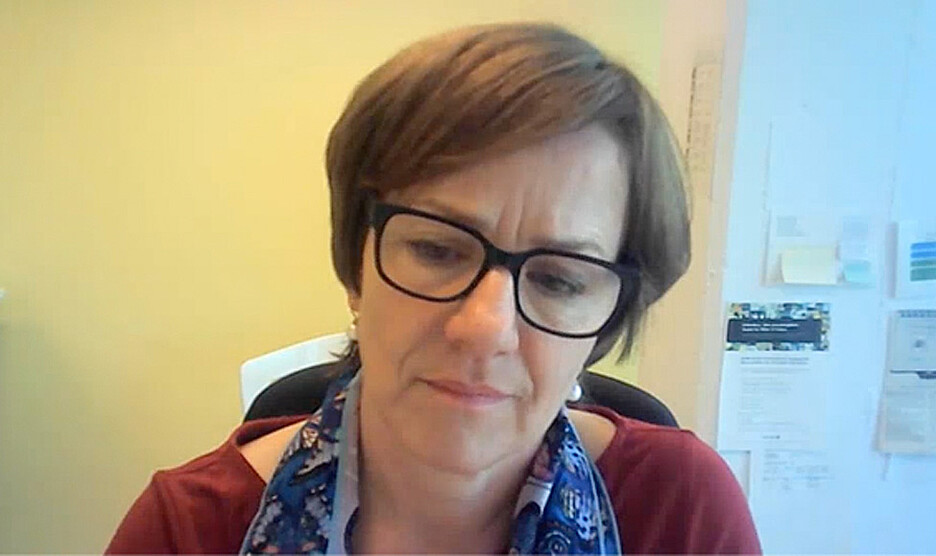
“We should read the news more selectively. The deluge of bad news can drain our life energy.”
Then came the point when I said to myself “You have to stop yourself reading all of this”. I now read the news much more selectively, including the news about the war. And I don’t think that I am any less informed because of it. You need to think carefully about what and how much you want to consume in the media, because this deluge of bad news can rob you of your joie de vivre and your energy, especially if you get too emotionally involved.
How do you cope with crises, Mr Dia-Eddine?
Dia-Eddine: My strategy is one of commitment. I look for like-minded people so that I can help others. This solidarity-based commitment makes it easier to understand the situation and people’s needs while dispelling uncertainty and negative feelings. That was what prompted me to be active in Bosnia-Herzegovina, for example. We organised on-site aid projects for more than five million Swiss francs in all and helped people in need, repaired water pumps or bought and distributed seeds for cereals and vegetables. In Kosovo, we contributed to the reconstruction of a hospital. And in Syria, we launched a digital platform which 30,000 young people now use to follow lessons, giving them prospects for the future.
What is your crisis management strategy, Mr Rohrer?
Rohrer: I’m extremely committed in the climate field and am so absorbed in this that I probably tend to blot out other crises.
All of you teach students – the makers of tomorrow. How do you explain to young people how they can shape a world in which peace, mutual understanding and sustainable development are the rule?
Dia-Eddine: Our Bachelor module “War, Economics and Business” is unique in Europe. We set out to prepare tomorrow’s managers for the fact that we are not living in Disneyland where there will always be a happy end. Of the 200 or so independent countries in the world that recognise the United Nations, 148 countries are unstable – not just politically but economically, socially or ecologically as well. We show our students what impact instability has on the economy and, conversely, how the economy can influence politics or society. Students need to understand their role as managers within the economic and social system.
Is your tuition more about saving the world or more about doing good business?
Dia-Eddine: We first and foremost equip students with the methods and tools that will enable them, as managers, to run a business successfully in difficult times too or at least secure a company’s survival. We also address ethical aspects, however, including corruption and civil wars.
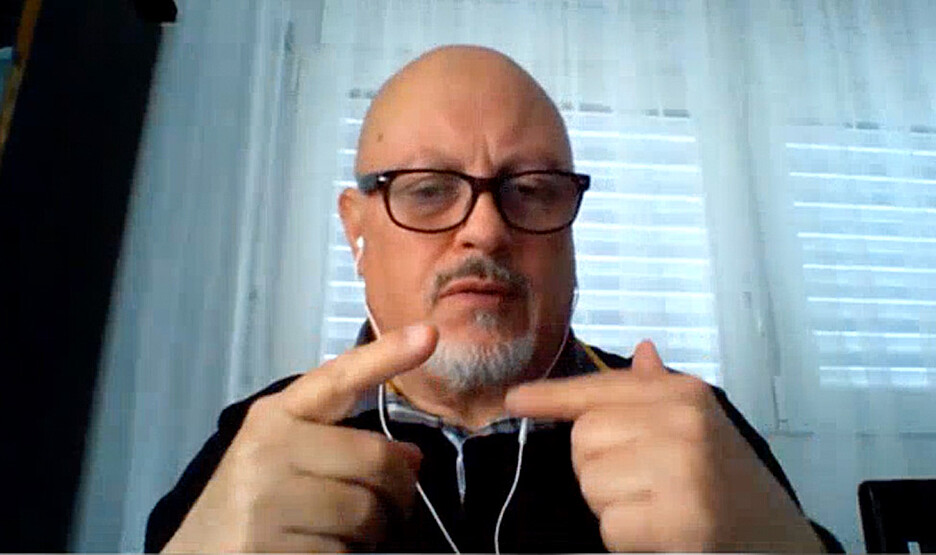
“Of 200 or so independent countries in the world, 148 are unstable – companies must take on responsibility to the same extent in all crises.”
Let’s take the example of the civil war in the Republic of the Ivory Coast. If I’m working there as a manager for Nestlé, what should I do? Withdraw from the country? Take one side or the other? Can I mediate between the parties to the conflict as a major economic player? It’s questions like these that we look into in this course. We have also discussed the role played by companies in Russia’s war against Ukraine.
Should Western companies assume greater responsibility in political and ecological crises?
Dia-Eddine: Companies must assume responsibility because they are part of society – and this is something they must do consistently in all crises. They can’t say we’ll get involved in this crisis but that other one is nothing to do with us. The state, companies and society must all pull in the same direction and endeavour to find a good solution for everyone.
You doubtless don’t have to convince your students of the importance of sustainability, Mr Rohrer. But how do you get next-generation environmental engineers to come up with meaningful new ideas?
Rohrer: Many of our students are doubtless motivated to enrol on the Bachelor programme by their wish to contribute to climate protection. We need to give them the tools for this and show them how everything fits together. Tuition on climate change is in great demand. Two lectures are generally not enough to cover this topic. The students have so many questions.
What are the most frequent questions?
Rohrer: The most frequent question is: Why is climate protection advancing so slowly in Switzerland?
And what’s your answer?
Rohrer: There’s naturally never just one single reason. But we live in a society where a relatively large and powerful portion of this society benefits from the current situation. This includes the fossil industry – but not only Shell and BP and the like. The fossil industry also takes in our municipalities and communes. Some of these are absolutely exemplary when it comes to climate protection but, at the same time, promote the production of energy from gas or make large sums of money from business of this type or use the money to finance campaigns aimed in completely the wrong direction. And the other delaying tactic, as I mentioned at the outset, is the focus on personal responsibility. Those in charge think that stricter measures would not be accepted, even though surveys have clearly shown that people would very much welcome such tighter measures.

How is crisis management taught in applied psychology, Ms von Wyl?
von Wyl: I myself teach clinical psychology and health psychology. In clinical psychology and psychotherapy in particular we are very frequently faced with crises at a highly individual or family level that result from crisis-triggering developments in a person or life-changing critical events. Our lectures cover what effective interventions and treatments could look like – the times when counselling or crisis intervention would make sense and the times when psychotherapy is needed. It is not only critical life events such as loss or separation that can plunge people into a psychological crisis. In many cases, stressful everyday situations, such as pressure to perform, unfulfilled needs or unmet goals, can also be a trigger. Almost fifty percent of people experience psychological problems at some stage in their lives. During the pandemic, a number of our students also had psychological difficulties and required support. Our experts offer counselling and short-term assistance to students and employees, as well as to other citizens.
The war in Ukraine is currently overshadowing all other crises. In the light of its brutal nature, one has to wonder what possibilities still exist for de-escalation.
Dia-Eddine: Negotiations are our best tool for tackling crises. I’m currently writing a book about this and am using the war in Ukraine as a case study to illustrate the life cycle of a crisis. No war lasts for ever. Either there is a winner at some point or all sides get tired or realise that they cannot achieve their aims by force. It is important to pinpoint a window of opportunity for negotiations here, which can then be employed to initiate a de-escalation process. The de-escalation steps must be defined and a dynamic developed in which even small steps will count as success stories. But not every de-escalation will result in peace. There are many “frozen conflicts” in evidence in geopolitics today.
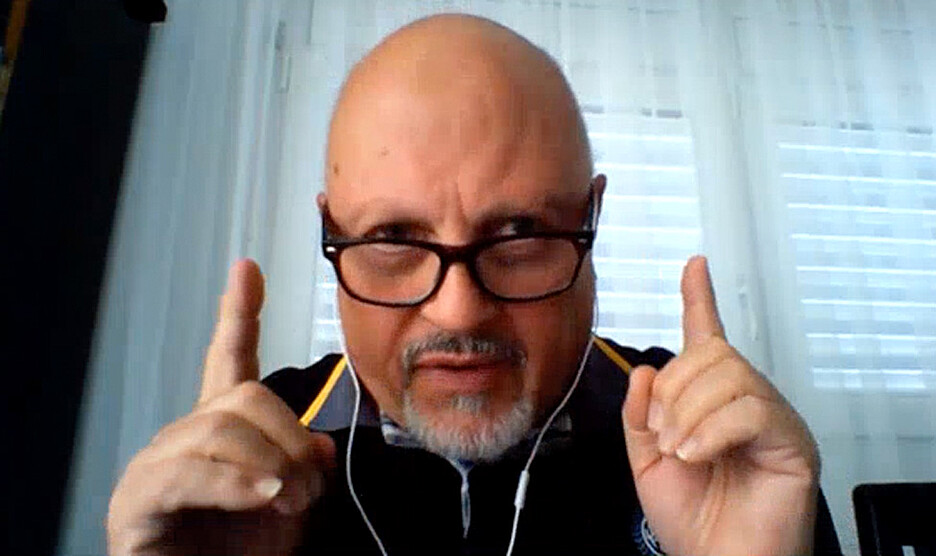
Frozen conflicts – that means no real crisis management has taken place?
Dia-Eddine: These conflicts are not being actively fought but they are always present in latent form. The climate crisis is also a frozen conflict. Despite repeated negotiations, countries withdraw again or fail to meet their targets … And each time a climate agreement has been signed, the politicians lean back contentedly as if all the issues would now sort themselves out automatically. Until, that is, the next phase of this same crisis or the next crisis comes along.
Rohrer: Switzerland is also suggesting that its targets fulfil the Paris Agreement. But this is not the case. And that is also how they are rated internationally. If we compare the scenarios required to attain the climate targets with the current situation, it becomes clear that we would need to construct three times as many renewable energy plants each year than were built in the record years of 2020 and 2021. We are therefore setting our targets at too low a level here and we are also very much on track for missing even these extremely low targets.
The West would like to tap energy sources in Arab states instead of obtaining oil and gas from Russia. These countries are also not beyond reproach as far as human rights are concerned. Switzerland spends eight billion francs every year on oil and gas from abroad. What are the consequences?
Rohrer: We can’t switch overnight. Those in charge are looking at where they can purchase the urgently needed oil and gas for purely pragmatic reasons. I can’t say where that is leading us to, but certainly not to the solution.
What would you do with these eight billion?
Rohrer: We basically know that we have to move away from fossil energies – primarily on account of the climate crisis. This question of dependence on dubious regimes would then no longer arise. We’ve known this for 40 years, however, and have not made many changes. The war in Ukraine is now acting as a wake-up call once again.
The Swiss Energy Foundation declared Energy Independence Day on 12 April. Up until then, the electricity generated in Switzerland had met the country’s requirements. Is the current funding system for renewable energies sufficient to ensure that the country can cover more of its own needs in future?
Rohrer: Certainly not, otherwise we would have been at a different point by now.
You, Mr Rohrer, have been warning for a long time that we need to make the switch to renewable energies at last. You want to work with a consortium – funded by the Swiss Federal Office of Energy – to draw up regional scenarios and strategies aimed at achieving as comprehensively as possible a renewable energy sector in Switzerland by 2050. How will this be achieved?
Rohrer: It’s basically as clear as daylight. We know that Switzerland has potential for photovoltaics, in particular. This needs to be massively expanded. The country also has a relatively high potential for wind energy, which complements photovoltaics. And when it comes to storage power plants, we need to replace our approach of maximising owner profits with the approach of achieving security of supply. That would be the solution.
It all sounds so easy.
Rohrer: But it’s not. It has been demonstrated several times already that it would be worthwhile switching over as early as 2035, without waiting until 2050 as planned. It would be much less costly in economic terms. The advantages are clear to see.
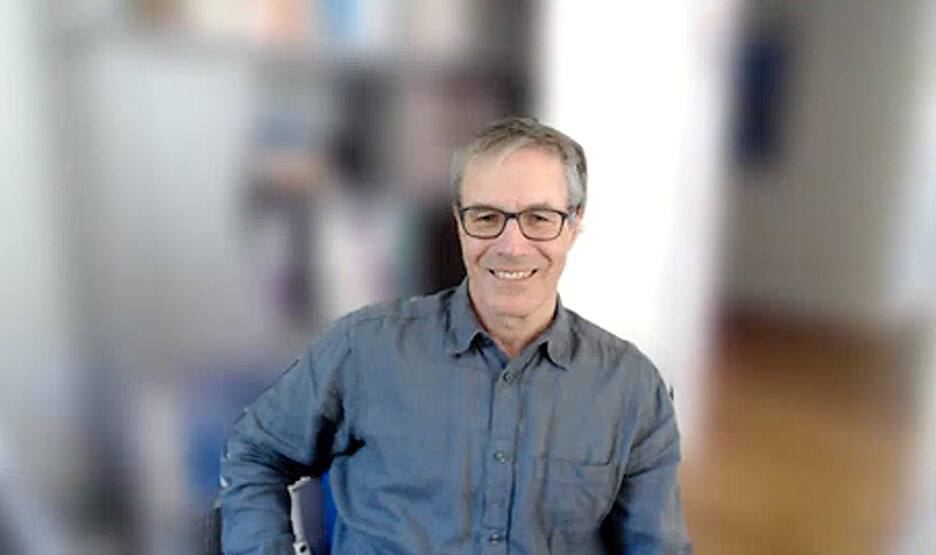
Electricity and petrol prices have reached record levels. Will that speed up the switch to sustainable energies?
Rohrer: I don’t really think so. We talk about price elasticity here. Prices would have to increase three- or fourfold before people changed their behaviour.
Dia-Eddine: And the price increases would have to be maintained for a long time. Two to three months is not enough. Don’t you think, Mr Rohrer, that we have a social problem here too and not just a political one? Are we as a society prepared to do without five percent of our quality of life and cut back on consumption in order to achieve our environmental targets? We could turn down the temperature in our homes from 21 degrees to 18 or 19 degrees and just put on a pullover. We can’t simply say “Goodbye Russia, we’re not buying your gas and oil any more” from one day to the next. We can, however, adopt the sensible approach of reducing our consumption somewhat with immediate effect for the sake of the environment.
Rohrer: Yes, most certainly. And there are enough studies showing that consuming less makes people happier.
Von Wyl: It’s quite true that there are studies that have shown this, but a lot of people don’t want to forgo things, despite being told “but listen, you’d be happier”.
Rohrer: Agreed. On the one hand, it’s important to come clean with people – protecting the climate will involve a drastic change. On the other hand, we shouldn’t scare them. It’s clear that our apartments won’t be heated to a mere 18 degrees but rather to 21 degrees instead of the 25 degrees so often found at present. We need to overcome people’s fear of change by providing them with an unconditional basic income or other forms of basic security, for instance. People need to feel secure otherwise whenever a change is on the cards – no matter how small it may be – someone will come along and stir up fear along the lines of “It will hit you hard, you’ll lose your job…”. If we had the security of a welfare net, this would make the switch to renewable energy genuinely possible.
Why do we let ourselves be frightened by such people?
von Wyl: Changes always prompt anxiety. No matter whether they are changes at work or changes in everyday family life, such as when the children leave home. Many people experience times like these as personal crisis situations. If someone then comes along and stirs up even more fear, large numbers of people will be receptive to what they have to say.
In the light of the war, people are calling for more arms spending – money that would be needed for climate protection and combatting poverty in the world.
von Wyl: For many years, I held out hope that there would never be a war like this in Europe again. Now, however, we must find a way of dealing with the fact that certain groups of people simply wish to assert their interests, including by engaging in violent aggression – to put it in general terms. At all events, I can readily understand why Ukraine wishes to defend itself by war-like means – even if the pacifist in me would like to see the war brought to an end. Something has changed within me. But I have not really progressed much further in my thinking so far. This is a process where I, like many of us, have to consider what this war actually means for us and deliberate on our attitude to arms deliveries and the military and so on.
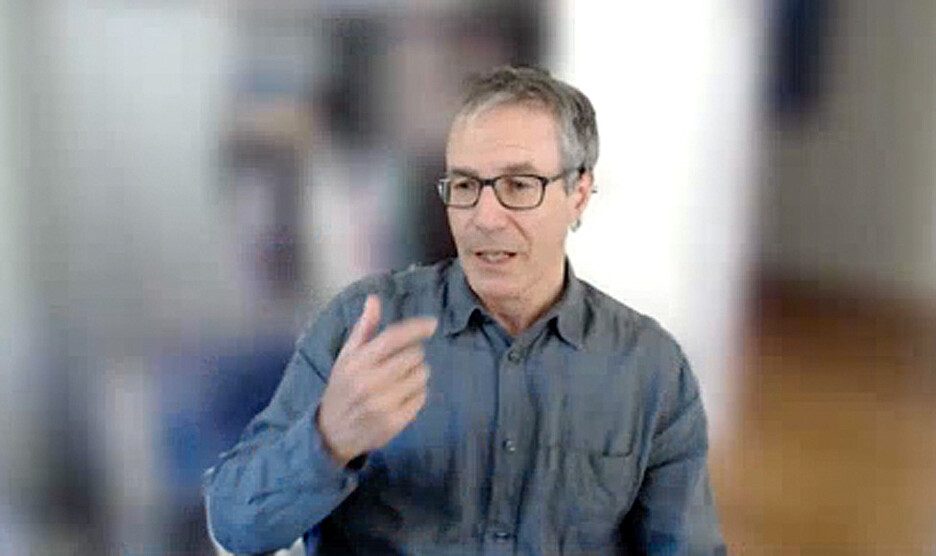
“I would first and foremost wish for peace. If we could make peace with nature, we would hopefully behave more considerately.”
Dia-Eddine: We need to achieve a balance between the different socio-political priorities. We can’t invest in the environment today, in social and health development tomorrow and then in combatting the pandemic again, while neglecting everything else. We need to adopt a holistic approach and balance out the different interests from a solidarity perspective. We must concern ourselves more intensely with how we can and ought to shape our social coexistence. We are still adopting too egoistic an approach in this respect.
If a fairy granted you three wishes, what would they be?
Dia-Eddine: That’s a really difficult question (laughs). My wish would be for people in general to be more sensible. This would mean our politicians would also be somewhat more sensible and we could then get our priorities right. If we took all the money spent on arms by all the powers of this world and spend it on social projects, we could live very happily on this Earth. Unfortunately, only a fairy could fulfil that wish.
“Social relationships are the most valuable asset that we possess.”
Rohrer: I would first and foremost wish for peace – peace with ourselves, then peace with others and, most importantly, peace with nature. If we were at peace with nature, we would suddenly see ourselves as part of it again, as a small cog in the clockwork of nature, and would then hopefully behave more considerately too. I think that this would change a great deal on this Earth.
von Wyl: My wish would be for people to place greater value on social relationships again, investing time in these relationships rather than in consumption or on social media, which have nothing to do with relationships. We should derive more pleasure from personal discourse once more. That is the most valuable asset that we possess.
Glossar
COLD WAR is the name given to the conflict waged by various means between the Western powers under the leadership of the USA and the so-called “Eastern Bloc” led by the former Soviet Union in the period from 1947 to 1991. The possibility of a “hot” war developing between superpowers came threateningly close on repeated occasions, such as with the Berlin blockade of 1948/49, the Cuba crisis of 1962 and the dispute over medium-range missiles between 1979 and 1982/83.
LIFE CYCLE OF A CRISIS: Various theories have been put forward regarding the management of crises. One such theory is that a crisis can be roughly divided into the phases of prevention, early recognition, management, restarting after the crisis and, finally, learning from the crisis.
SWEET – “Swiss Energy research for the Energy Transition” – is a funding programme run by the Swiss Federal Office of Energy (SFOE). SWEET sets out to promote innovations conducive to the implementation of Switzerland’s Energy Strategy 2050 and to achieving the country’s climate goals. ZHAW researchers including Jürg Rohrer are also involved in the projects.
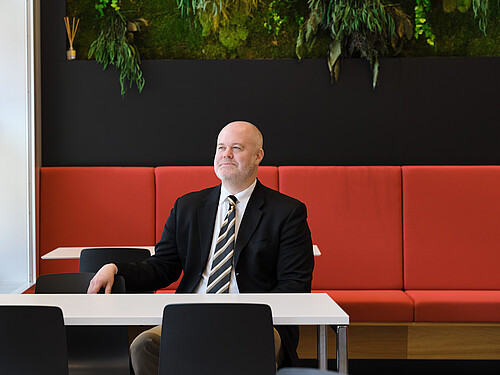
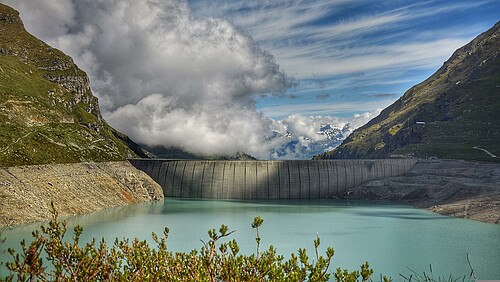
0 Comments
Be the First to Comment!